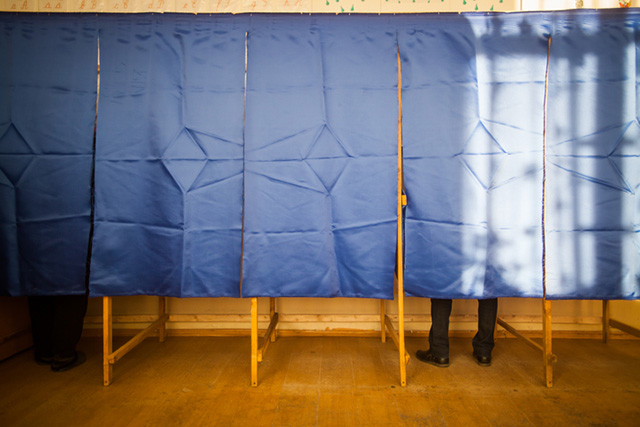
Legal experts and voting rights advocates are raising alarms about a reversal in the Justice Department’s long-standing interpretation of a federal law that dictates when and how states can purge voters from their rolls.
Regarding the pending Supreme Court case Husted v A. Philip Randolph Institute, President Donald Trump’s Department of Justice (DOJ) filed an amicus brief (pdf) in favor of Ohio’s voter-rolls maintenance program — which cancels registrations of those who do not update their registrations or vote over six years — a move that critics warn “opens the door for wide-scale unlawful purging of the voter registration rolls across our country.”
“Just last summer, the Justice Department had affirmed in this same case, before the Sixth Circuit Court of Appeals, its view that Ohio’s voter purge practices violated federal law,” said Vanita Gupta, president and CEO of The Leadership Conference on Civil and Human Rights.
“The law hasn’t changed since the Department accurately told the Court that Ohio’s voter purge was unlawful. The facts haven’t changed. Only the leadership of the Department has changed,” said Kristen Clarke, president and executive director of the Lawyers’ Committee for Civil Rights Under Law.
The 1993 National Voter Registration Act (NVRA) — further clarified in 2002 with the Help America Vote Act — requires states to maintain accurate voter rolls by removing registrations of people who have moved or died. It also says that states’ maintenance programs “shall not result in the removal of the name of any person from the official list of voters registered to vote in an election for Federal office by reason of the person’s failure to vote.” States are authorized to remove a registrant’s name from the rolls if they fail to respond to an address-verification notice, and then do not vote during a period spanning two federal elections.
Many states wait for an indication that a voter may have moved before turning to the NVRA process, but states such as Ohio send a notice “to voters who lack voter activity over two years, and removes individuals from the rolls if they both fail to respond to the notice and fail to engage in voter activity for four more years.”
As a result of last year’s appeals court ruling against the Ohio program, the Toledo Blade reported: “About 7,500 voters who were purged from Ohio voter registration rolls from 2011-2014 but were then reinstated at the order of a federal judge last year showed up and voted in the 2016 presidential election.”
The DOJ under former President Barack Obama supported the appeals court ruling, noting that in 2010 the department had issued guidance that “addresses the precise issue presented in this case and articulates the department’s position that states must have reliable evidence indicating a voter’s change of address before they initiate the NVRA-prescribed process to cancel the voter’s registration based on a change of residence.”
However, Ohio appealed to the Supreme Court, which agreed to hear the case, and the new DOJ — headed by Attorney General Jeff Sessions, whose history with regard to civil rights has raised concerns since President Donlad Trump nominated him — has now revised its guidance for the law. The shift may not have widespread department support, though, as Ari Berman reported in Mother Jones: “Notably, no career lawyers from the Civil Rights Division signed the brief, as is customary, potentially signifying internal opposition to the department’s new position.”
It certainly has voting rights advocates worried. Gupta said: “The sudden shift in longstanding position because of a change in political administrations raises real concerns about the politicization of the Justice Department’s historic role in protecting voting rights.”
However, criticisms of the Trump administration and its Justice Department aren’t limited to this recent shift in policy, which follows a number of other voter-related measures that have been criticized as attacks on voting rights.
“Monday’s filing was further confirmation of some of our worst fears about the Trump administration’s crackdown on voting rights,” Gupta said. “Whether through repeated false statements about supposed mass illegal voting, creating a sham commission to pave the way for voter purges, or telling courts that it’s acceptable for states to remove eligible voters from the rolls without adequate evidence, the Trump administration is leading an attack on voting rights.”
“The Department of Justice’s latest reversal of its position in a critical voting rights case represents just the latest example of an agency whose leadership has lost its moral compass,” said Clarke.
Join us in defending the truth before it’s too late
The future of independent journalism is uncertain, and the consequences of losing it are too grave to ignore. To ensure Truthout remains safe, strong, and free, we need to raise $50,000 in the next 9 days. Every dollar raised goes directly toward the costs of producing news you can trust.
Please give what you can — because by supporting us with a tax-deductible donation, you’re not just preserving a source of news, you’re helping to safeguard what’s left of our democracy.